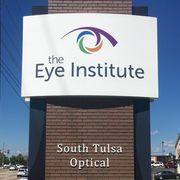
Experiencing visual symptoms in one eye can signal a retinal migraine. A type of ocular migraine, these vision issues are rare and usually do not last long. If you believe you have retinal migraines, learn more about them and what eye care tips reduce symptoms here.
What to Know About Retinal Migraines
Symptoms
Common retinal migraine symptoms include auras, or visual disturbances in one eye, including experiencing temporary blindness and scintillations, or twinkling lights. Dimmed and blurred vision can also occur. Some people experience partial or complete blindness in one eye, which typically lasts 10 to 20 minutes. However, vision loss from a retinal migraine might last for up to one hour.

Headaches occurring during or after vision issues can happen from retinal migraines as well. These headaches last several hours or several days and can include nausea and vomiting, sensitivity to light and sound, and throbbing pain on one side of the head.
Causes
While what specifically causes retinal migraines is unknown at this time, vein or artery narrowing in the eye is believed to play a role. Genetics might also affect retinal migraine susceptibility. Possible triggers are similar to those connected to migraines with auras, and include stress, high blood pressure, dehydration, low blood sugar, smoking, and high altitude.
Other potential triggers include birth control pills, hot temperatures, caffeine withdrawal, and intense exercise. There are also diseases and conditions that affect eye blood vessels and can cause retinal migraine symptoms, including sickle cell anemia, lupus, and epilepsy.
Treatment
Eye care for retinal migraines includes identifying which triggers cause symptoms, such as getting dehydrated or experiencing severe stress. After reviewing your symptoms, your eye doctor might recommend certain medications, such as nonsteroidal anti-inflammatory drugs to relieve pain. Anti-nausea medication is helpful if you routinely experience nausea and vomiting from retinal migraine-related headaches. Calcium channel blockers might also prove effective if your vision issues relate to high blood pressure.
If you have a health issue that affects blood vessels in your eyes, such as sickle cell anemia or lupus, managing the disease effectively can help mitigate retinal migraine symptoms. It can also help to rest your eyes and avoid harsh sunlight.
Enjoy eye care services for the whole family at South Tulsa Optical. Based in Tulsa, OK, this vision care center offers a wide range of prescription glasses from top designers, including pediatric eyewear. Call (918) 494-0351 today to make an appointment or visit the website for eye care information.
About the Business
Have a question? Ask the experts!
Send your question

